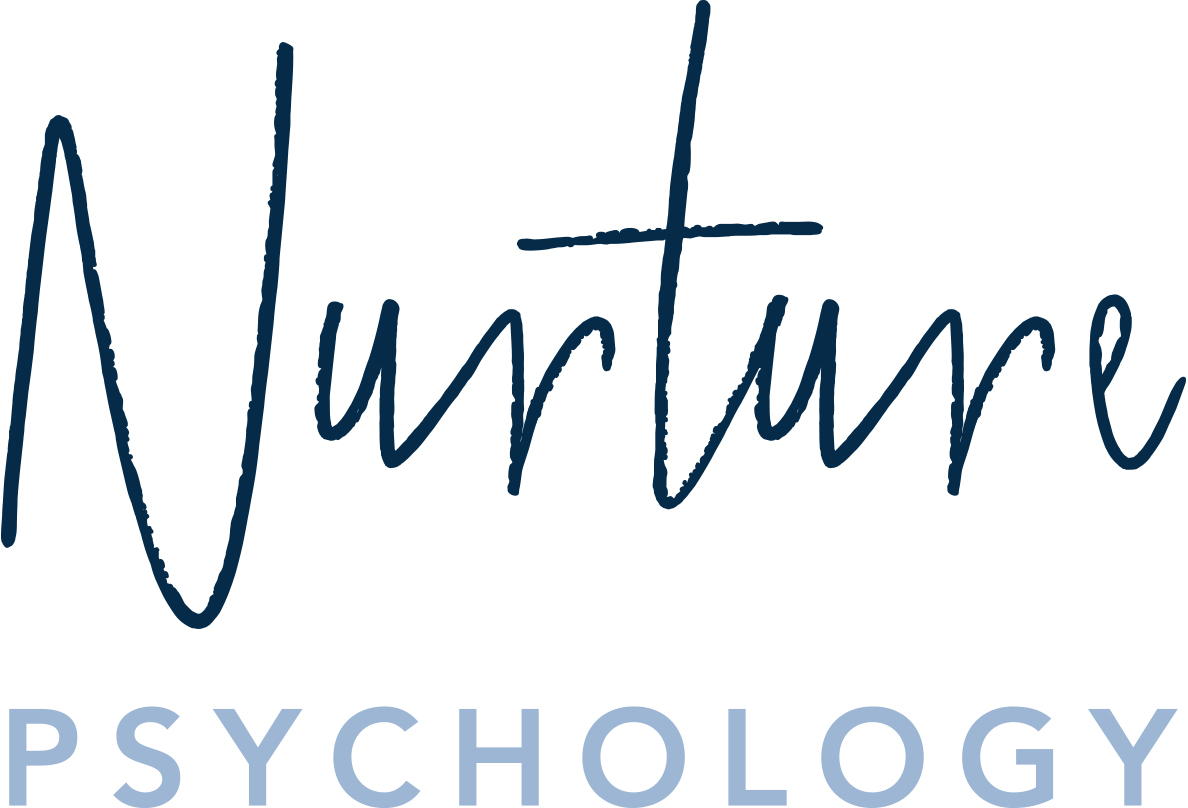
Treatment approach
We strongly believe that the most effective pathway to recovery from an eating disorder requires personalised, evidence-based psychological treatment, delivered in the context of our in-house multi-disciplinary team (Medical, Dietetics, Psychiatry).
Psychological treatment (“therapy”) is delivered by our highly trained & registered psychologists (Masters-Doctoral level qualifications), who strive to provide treatment in the safety of a nurturing and collaborative therapeutic relationship.
YOUR INITIAL ASSESSMENT
Psychology assessment
The aim of your initial assessment appointment with one of our registered Psychologists (up to 90-minutes) is to understand your current challenges and their context, together with relevant background factors. This extended appointment allows for an in depth assessment of eating difficulties and consideration of relevant diagnoses, in addition to giving time for you & your psychologist to determine whether there is a “good fit” for ongoing treatment/therapy.
Personalised treatment planning takes place following completion of the assessment. This process allows your Psychologist to have a full understanding of your challenges, so that treatment recommendations can be tailored to your unique situation.
Please arrive about 5 minutes early to complete a personal details form in the waiting room. Typically, you will be emailed some online clinical questionnaires to complete before your first appointment, to give your psychologist a broad snapshot of your current situation.
Psychiatry assessment
An initial assessment appointment with our Psychiatrist is indicated for those with more complex mental health concerns, and/or those where medication may be indicated as part of your treatment plan. A 60-90 minute initial consultation allows your Psychiatrist to assess & consider diagnostic clarification, medical risk management (including re-feeding and comorbidity oversight), psychopharmacological treatment, and integration of neurophysiology and neuropsychiatry into your care as needed.
Liaison with your treating psychologist (and any other clinical team members) is standard, supporting a multidisciplinary approach within your care team. Ongoing follow-ups including medication review are arranged on an as-needs basis.
Medical assessment
A consultation with our eating disorder specialist GP or Paediatrician (Wellington only) has a specific focus on the multiple physical risks and symptoms of an eating disorder, including those that may be overlooked by a non-specialist doctor. Any eating disorder in any sized body can pose an acute risk to your physical health and have potential long-term consequences for growth, fertility, bone and brain health. A specialist medical appointment provides an opportunity to consult with a doctor of many years' experience (with both general practice and eating disorders), to help determine and manage these physical impacts.
A 60 minute initial appointment allows space to compassionately assess these medical parameters in depth and without time pressure, and discuss any concerns or questions you may have about your physical health. Following the initial assessment, you have the option of continuing eating disorder medical monitoring with our GP or Paediatrician (30 or 15 minute follow-ups), or keeping your care with your usual GP.
Want to book an appointment?
PSYCHOLOGICAL TREATMENT FOR EATING DISORDERS
We provide personalised, evidence-based treatment for the full range of eating/weight/shape concerns across all ages & stages of life:
Bulimia Nervosa
Anorexia Nervosa
Binge eating disorder
Purging disorder
Orthorexia
Body image/body confidence concerns
“Subthreshold” or mild/early cases of disordered eating (EDNOS/OFSED)
Chronic dieting or weight fluctuations
Fussy eating (typically in childhood)
Avoidant-restrictive food intake disorder (ARFID- clinically significant fussy eating)
Eating disorder treatment for adults (18yo+)
Therapy sessions with our registered psychologists are 50-60 minutes long. We draw heavily on evidence-based psychological interventions (or therapies) when planning individual treatment. These are treatments that have strong evidence for their effectiveness from high quality research trials involving people with eating disorders, anxiety, or mood concerns from around the world.
In many cases, a client may be a good fit to sit within one specific treatment framework, such as cognitive behavioural therapy-enhanced for eating disorders (CBT-E), or a specialist therapy for anorexia nervosa (e.g. MANTRA/SSCM). In other cases, your Psychologist may decide to additionally draw from a number of complimentary approaches including dialectic behaviour therapy (DBT), motivational enhancement therapy (MET), and acceptance & commitment therapy (ACT) to enhance your treatment plan.
We liaise closely was appropriate with other in-house community-based professionals (e.g. endocrinologists or psychiatrists) involved in your care.
We are fortunate to have an in-house dietitian with specialist training in working with eating disorders as part of our team. The addition of dietetic work may be recommended alongside psychology sessions - this can be discussed with your Psychologist.
Eating disorder treatment for children/adolescents/teens (<18yo)
With children & adolescents, the family (parents/guardians) are typically a key part of the treatment team, and fully engaged in assessment & treatment delivery. With younger children, parents are typically in session with their child.
For adolescents & teens, we have two main approaches for eating disorder treatment depending on the current difficulties. Our typical approach is working either simultaneously or in tandem with the young person and their parents.
Maudsley family therapy (FT-AN; similar to FBT) is a well established treatment model developed at the Maudsley Hospital in London, that harnesses the strength of the family system to support recovery from anorexia nervosa. This involves working with all members of the family together in session, supporting parents to support their child toward appropriate nutritional intake and weight restoration/stabilisation. This approach focusses on achieving physical recovery through behaviour change around food & eating, with strong parental involvement.
Adolescent & Parent Treatment (APT) is an emerging treatment model that integrates the research evidence-base from both family therapy and individual therapy, to support the young person to recover both physically & psychologically from anorexia nervosa. APT is our typical model of care at Nurture, involving:
1- parent work to support re-feeding the adolescent at home (as in Maudsley family therapy/FBT, plus optional dietetic support)
2- individual psychology work with the adolescent/teen, to support distress & address underlying psychological difficulties, and
3- family work, to bring together the parent-focussed and adolescent-focussed elements of treatment
Nurture Psychology is the official provider (& trainer) of APT in New Zealand, and is actively involved in research on this treatment modality.
You can read more about APT in an academic journal article co-authored by our Clinical Director - please click here and for early response pilot research on APT, click here.
In some cases with older teens, we may work primarily on an individual therapy basis (as with adults). With this approach, there is typically still a role for parent/s, including being regularly looped in on treatment focus & progress.
As with adult cases, all treatment planning involves evidence-based treatment models, and is also individually tailored to the young person & their family. Details of the approach recommended for your family/young person are discussed following completion of the initial assessment appointment.
Please note that due to the constraints of private practice, we are unable to see clients that are high medical risk (including being at a very low body weight), are engaging in notable self-harm, or have current suicidal ideation.
In this instance, please contact your GP or the hospital emergency department for support.
“He aha mea nui o te au?
He tāngata, He tāngata, He tāngata, ”
PARENT CONSULTATIONS
We offer one-off parent consultations for parents of a child/adolescent/teen/young adult with an eating disorder or suspected eating disorder. These consultations may be helpful if you have questions about eating disorders, are unsure whether you should be concerned about your child/adolescents behaviour, are unsure whether you should bring them into the clinic, and/or if you are considering a change in treatment provider.
The aim of these sessions is to understand the current situation for your family & young person, answer any questions parents may have, and to have an informed discussion around immediate support strategies and treatment options (whether with us or elsewhere) moving forward. Parent consultations can be a one-off appointment, or can lead into our standard assessment process should you chose to engage with us.
Given there is currently a notable wait-time for specialist psychology treatment across the eating disorder sector, we also offer these sessions to parents with children on our waitlist, with the aim of providing interim support and advice around management.
Parent consultations are 90 minutes long with our Clinical Director Dr Marion Roberts. Appointments are available both in clinic, and throughout New Zealand via our online telehealth clinic (similar to Zoom). Please complete our standard referral form or email hello@nurturepsychology.co.nz to book.
TREATMENT FOR ANXIETY & MOOD CONCERNS
We are passionate about supporting the whole person to health and wellness, which can often involve more than just a focus on the eating disorder. Alongside eating disorder treatment, we also offer evidence-based treatment for the following mental health challenges in the context of eating disorder treatment:
Depression, low mood & other mood disorders
Anxiety & anxiety disorders, such as:
Generalised anxiety
Social anxiety
Health anxiety
Clinical perfectionism
Specific phobias
Obsessive-compulsive disorder/behaviours
Persistent worry & stress
Trauma
Clients can vary considerably in terms of their needs when seeking psychological support for anxiety and mood disorders. This work is woven into treatment for the eating disorder as appropriate.
Please note that whilst we are very comfortable tailoring treatment to clients with neurodiversity, we do not provide standalone ADHD/Autistic Spectrum assessment or treatment.
Treatment will be most likely based in Cognitive Behavioural Therapy (CBT) as it is the leading evidence-based treatment for anxiety and mood concerns. Depending on your situation, your psychologist may draw from “third-wave” evidence-based therapies such as Acceptance & Commitment Therapy (ACT), and dialectic behaviour therapy (DBT).
LOW COST TREATMENT
We offer a low cost treatment option for adults (18+) with disordered eating that are unable to finance typical or “best practice” psychological treatment. This involves working through a recommended workbook alongside shorter (25-minute) sessions with your psychologist, and over a shorter period of time. This approach focusses solely on cessation of binging and/or purging behaviours, and is not suitable for those that are underweight. Please note this is a light version of psychological therapy (known as “guided self-help”) and is not appropriate in all cases.
In order to facilitate this as a low cost treatment, typically this package of care is with our Intern Psychologist, working under the supervision of our Clinical Director/Senior Clinical Psychologist.
Please email hello@nurturepsychology.co.nz if you would like more information about this approach.

